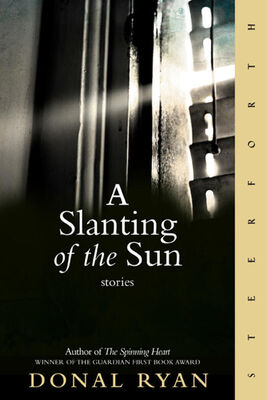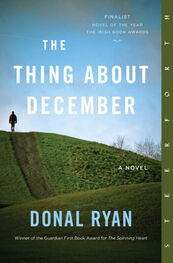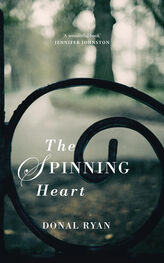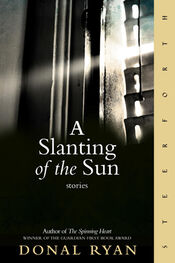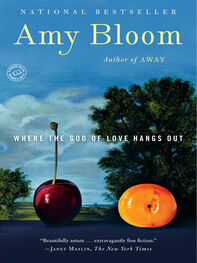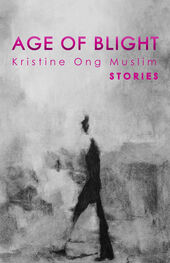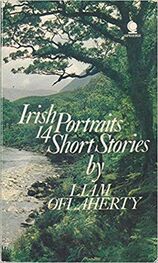The only movement of him I could see was a trembling. Even his eyes were still, but shining all the while. The leader of them hadn’t yet laid into Michael, and the thought about the strange sight of the straightness of Michael’s poor back was still fresh and foolish in my head and all of a sudden I knew all there was to be known about that boy. It was the very same as if I was looking into a mirror that reflected only what was inside of a person. I was visited by a new kind of clearness I had never once possessed in all my days. Maybe that’s the way of epiphanies: that a man must be at his most desperate before they bless him. Not that I counted myself blessed in that moment, lying without the power of my legs or control of my bladder, with no defence, at the mercy of madmen, and a child before me being chased by the Fates towards a precipice.
I was never able to do the things that I thought of doing inside in my head. I never had the boldness to close my hand on twisting chance. Whenever the wind blew right for my desires I hadn’t my sails set. I was resolute in my unpreparedness: designedly I sat becalmed and drifted, away from opportunity. I knew myself. But this same self-knowing that I gained in sorry increments over a lifetime was descending all at once on this boy as he stood on our ancient stairs, though what he was all of a sudden coming to see inside himself was different from what I had discovered inside in me. There’s a lot to be said for an eventless existence all the same, where knowledge can be gradually gained, examined and tested at leisure, coped with and brought more easily to terms. While standing in a high meadow burning gorse, or looking at a hurling match, or watching from a distance the bare shoulder of a woman and the thin line left white where a strap of some garment had held off the sun. A slow, drawn-out facing of the truth, a lifetime of gentle revelation.
But no such ease for this boy. He was being crushed under the weight of his discovery. He knew now in this sudden stillness on the stairs of the house my father’s father built that he wasn’t like his savage comrades: he hadn’t what he saw as their strength, their bravery, their careless fists; he wasn’t able to look with derision on an old man lying in his own water with his mouth opening and closing in silent pleading and spit on him and beat from him the whereabouts of balls of imagined money. And he had only seconds left before he had to separate his back from the wall that had been thrown up unexpectedly behind him and if I’d had my voice I’d have told him, Don’t worry, son, you are who you are, go on back down to the scullery and take down the biscuit tin from the top shelf that’s tucked in behind a load of empty marmalade jars and there’s a Visa card in there and the number of it is nine-seven-nine-oh and you can draw out as much as you want out of it and won’t that placate the other two and you can buy yourself a bit of time that way to put distance between yourself and this life you’re trying to make yourself live and you can go somewhere and be good, the way whatever set of chances that brought you into being meant you to be.
What design is there, though? The killing of Michael started then and still the boy stood and flinched each time a roar sounded followed by a wet thud and after a long few moments he looked back over his shoulder and the borders of flesh I could see around his eyes and mouth were paler again when he turned back and the trembling of him was even in his legs. And the dark man was in the hall now and his comrade was a shadow behind him and I couldn’t make out what he was screaming up at us for the loudness of it but I think it was Do him, do him, do him to fuck will you, do him, and I saw the boy’s lips move in the shape of I’m sorry and a tear fall from each of his blue eyes and his arm swing back and over his head and down and the night came falling in.
And when all that was done and they were gone and I rose out of that darkness, I tried to move myself to untether my brother and lay him down the way he’d be respectable-looking, the way he’d wish to be, but I hadn’t the strength to crawl from beneath my blanket of pain and it was the end of the morning before my cousin came in through the door and found Michael dead and me not far from it. And I couldn’t bide long with that shadow haunting my days and for a finish one frosty morning some tiny dam inside in my head gave way and the workings of my arms and legs and tongue were drowned in blood and I was carried here to this home and I won’t stir too far from this bed again until they carry me to the flat-roofed mortuary that’s appended to this place, itself like an unmoving limb.
My carer comes in here even on the days he’s not down to be working at all. He doesn’t let on at all but I know. I heard that shrieking shrew of a matron one day and she interrogating him outside in the corridor. What in the name of Jesus do you mean, coming in here and you not rostered on? Well, I was doing nothing else and I kind of promised Mister Reilly I’d stay going with that book we’re reading. And she tutted and huffed and shot something at him about how he needn’t think now he’d be getting paid for it and no overtime had been approved by Upstairs and he said Oh God no, I’m here as a visitor, and she clomped away, still giving out as she went.
And as he reads, slowly, stumbling on the odd word, I feel relief that he’s here, and a joy I never felt in all my days, and a peacefulness, and I allow myself the warm foolishness of imagining that we are father and son. I look at his blue eyes and I think how they’re the same, the exact same, as they were the day they first met mine on the stairway, except for that feverish light is gone from them. He’s calm now, in the knowing of himself, making his reparations. And though barely a word has ever come between us that wasn’t read by him from the pages of a book or a newspaper, we know one another the same as if we had a lifetime gave in one another’s company. And I sit still, and I watch his eyes as they cross the pages, and I love him.
Thanks:
To Brian Langan; to Mary Ryan; to Joseph O’Connor and the Department of Creative Writing at the University of Limerick; to Sarah Bannan and the Arts Council of Ireland; to the people who read my books, for allowing me to be a writer; to everybody at my publishers and across the book trade who has worked to make my books successful; and to Anne Marie, Thomas and Lucy, the chambers of my heart.
A number of these stories previously appeared in other publications. ‘Tommy and Moon’ was commissioned and broadcast by BBC Radio 4; ‘Losers Weepers’ and ‘Hanora Ryan, 1998’ were published in The Irish Times ; a shorter version of ‘Grace’ was published in The National Gallery of Ireland’s book Lines of Vision : Irish Writers on Art (Thames and Hudson, 2014); and ‘Meryl’ was commissioned and published in the Ogham Stone Literary Journal, University of Limerick.
Donal Ryan, from Nenagh in County Tipperary, is a recipient of the 2015 European Union Prize for Literature. His first novel, The Spinning Heart , was published to major acclaim. It won the Guardian First Book Award and the Book of the Year at the Irish Book Awards; it was shortlisted for the International IMPAC Dublin Literary Award; and longlisted for the Man Booker Prize and the Desmond Elliott Prize. His second novel, The Thing About December , was a finalist for the Kerry Group Irish Novel of the Year and Novel of the Year at the Irish Book Awards. Donal lives with his wife Anne Marie and their two children just outside Limerick City.
